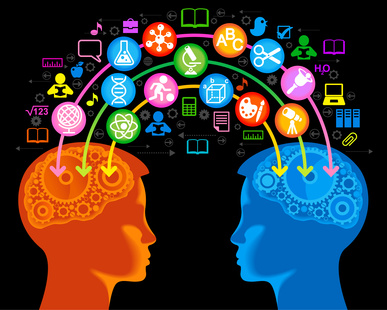
the concept of education of children.the generation of knowledge
Where are we heading to?
In education we are teaching students for a future we don’t know much about. Technology and digital communication are changing the world too fast to predict and draw a picture of how schools, careers and economy will be for our current students. One thing we know for sure is that the world is heading towards a knowledge-based economy.
A knowledge-based economy (KBE) is defined as an economy that is based on the production, distribution, and use of knowledge and information. Knowledge is the driver of economic growth, leading to a new focus on the role of information, technology, and learning. Increasingly, economies of countries are becoming more dependent on knowledge, information, and high-skilled workers to improve their standard of living.
The Global Scope of KBE
Real life has already shown the advantage of being involved in information technology at a global level. The knowledge-based economy must permeate all industry sectors and all countries in order to contribute to building the new economy.
Education
Developing KBE will require students to possess higher skills in literacy, numeracy, and critical thinking. All students will need the right education, training, and skills to navigate, work, and engage in an increasingly demanding world. In the coming decade, we will need to raise the basic and innovative skill level of students to transition into new jobs and markets that currently do not exist.
Collaboration
Knowledge and technology have become increasingly complex. Governments, schools, industries, and regular citizens will all have to collaborate and share knowledge in order to serve the interests and competitiveness on the global stage.
Innovation
Innovation is defined as “new or better ways of doing valued things and is not limited to products but includes improved processes and new forms of business organization.”
Innovation is a fundamental part of the knowledge-based economy since it is, directly or indirectly, the key driver of productivity growth and thus the main source of prosperity. In order to foster greater innovation and compete internationally we need to support and improve the level of entrepreneurial skills of our students and graduates.
Elements that are indicative of a knowledge-based economy are:
- Research and Development (R&D):
Investment in research and development is a key indicator of efforts to promote technology and innovation.
- Intellectual property rights:
For an open exchange of ideas to occur, a strong intellectual property policy that encourages innovation is required.
- Venture capital:
There will be a need to support Small and Medium Enterprises (SMEs) to become self-sustaining when implementing a creative idea.
- Structural changes in the economy:
New jobs will be created. Employment will shift from routine-oriented to creativity-oriented occupations, while boosting the creative content of all work in all industries.
- Partnerships:
Partnership is crucial among different sectors and industries to develop pathways and opportunities in key knowledge-based markets and attract high qualified individuals.
- Labour Market Information (LMI):
LMI plays an important role in improving the efficiency of the education system by increasing information on learning opportunities and raising completion rates.
A Learning Strategy to promote KBE
In order to adapt and succeed in the coming decade, students will need the right skills and competencies required in a society that is increasingly complex.
This will require collaboration among partners to develop a strategy focused on
- improving adult learning opportunities,
- improving language learning, and
- creating incentives at the individual, firm, and industry sector level for adults to retrain, improve their literacy and numeracy, or attain a post-secondary education in their later years.

